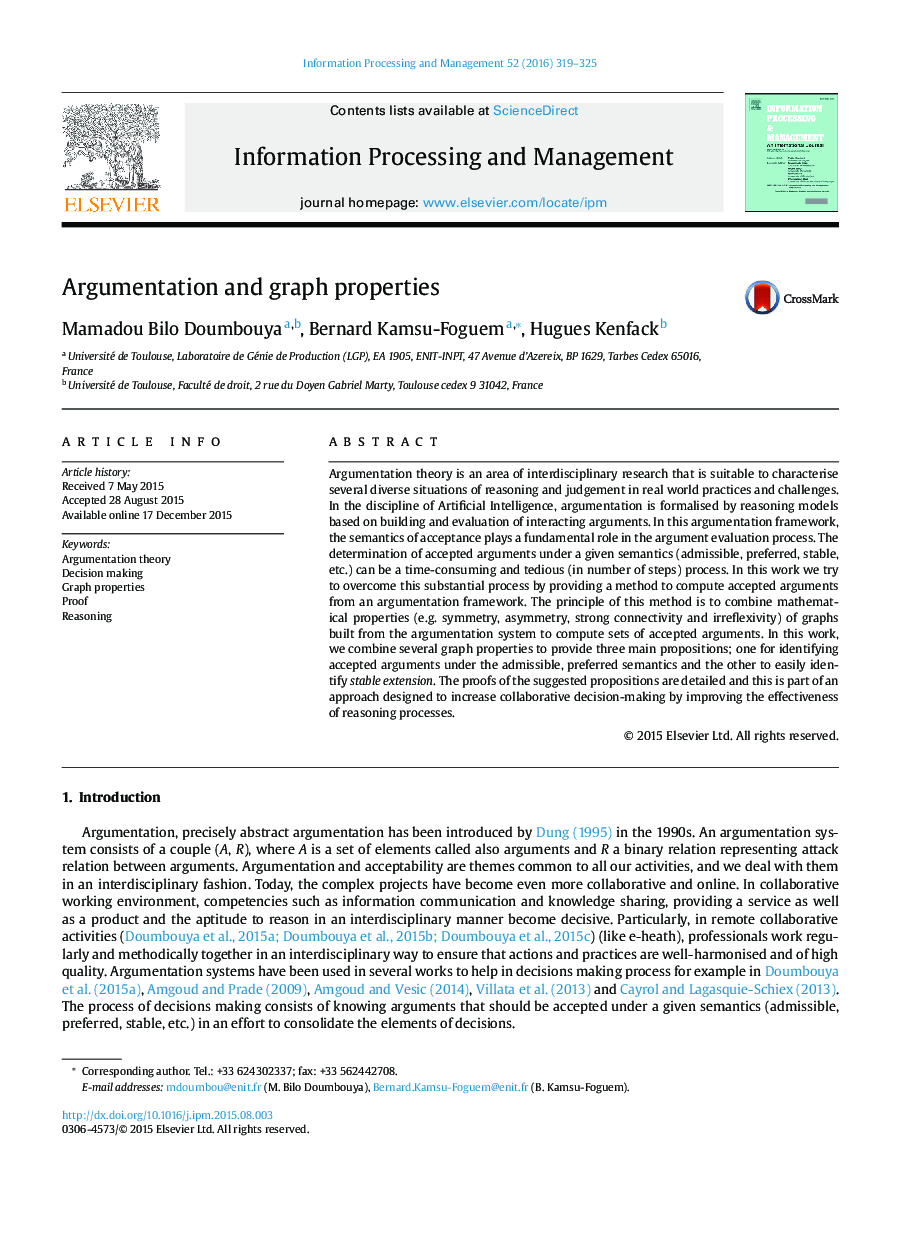| Article ID | Journal | Published Year | Pages | File Type |
|---|---|---|---|---|
| 515807 | Information Processing & Management | 2016 | 7 Pages |
Argumentation theory is an area of interdisciplinary research that is suitable to characterise several diverse situations of reasoning and judgement in real world practices and challenges. In the discipline of Artificial Intelligence, argumentation is formalised by reasoning models based on building and evaluation of interacting arguments. In this argumentation framework, the semantics of acceptance plays a fundamental role in the argument evaluation process. The determination of accepted arguments under a given semantics (admissible, preferred, stable, etc.) can be a time-consuming and tedious (in number of steps) process. In this work we try to overcome this substantial process by providing a method to compute accepted arguments from an argumentation framework. The principle of this method is to combine mathematical properties (e.g. symmetry, asymmetry, strong connectivity and irreflexivity) of graphs built from the argumentation system to compute sets of accepted arguments. In this work, we combine several graph properties to provide three main propositions; one for identifying accepted arguments under the admissible, preferred semantics and the other to easily identify stable extension. The proofs of the suggested propositions are detailed and this is part of an approach designed to increase collaborative decision-making by improving the effectiveness of reasoning processes.
